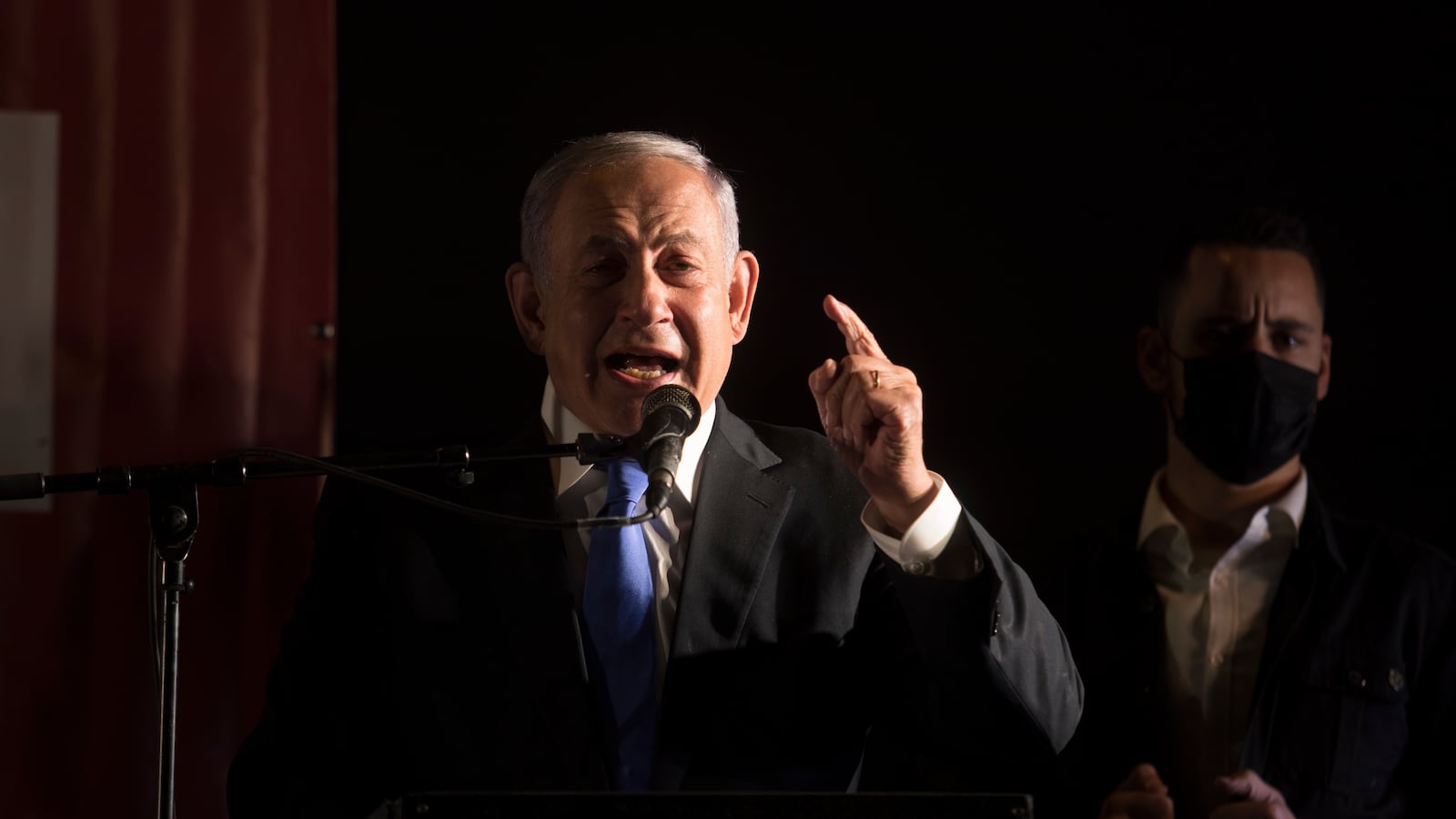TEL AVIV—Exit polls from the Israeli elections suggest that former Prime Minister Benjamin Netanyahu has a good chance of regaining power after the fifth successive election campaign in Israel since 2019.
Results are likely to shift as real votes are counted throughout the night, but exit polls showed a decisive advantage for Netanyahu over current prime minister Yair Lapid, who has led a broad but unstable coalition that unseated Netanyahu after he held power for 12 years.
Exit polls indicated Netanyahu's voting bloc had gained about 62 seats in the Knesset, Israel's parliament, out of a total of 120.
Netanyahu’s triumph may still prove Sisyphic. In the first round of elections, in 2019, Netanyahu appeared to have secured a clear victory but proved unable to form a governing coalition in Israel's fractious multi-party parliamentary.
The former prime minister’s potential coalition partners will prove difficult to reign in, none more so than the 15 seats projected to have been won by Religious Zionism, a motley collection of ultra-right-wing groups that Netanyahu cobbled together as part of his efforts to not bleed out votes to the right.
Yohanan Plesner, president of the Israel Democracy Institute, said that “While the exit polls may indicate a trend, it is important to note that there have been discrepancies between these surveys and the actual results in past rounds of elections.”
Kahanist Itamar Ben Gvir, the leader of Jewish Power, is the only Israeli legislator to have been convicted of terror charges. He is demanding the police portfolio. His partner Bezalel Smotrich is a theocrat whose platform includes imposing “Biblical law” on Israel.
Netanyahu’s party, the Likud, is projected to have won about one quarter of all votes cast, holding about 30 Knesset seats. His only other evident coalition partners are ultra-orthodox Jewish religious parties.
The new coalition, if it comes to be, could radically change the face of the country and significantly alter Israel’s status in the global diplomatic community.
Netanyahu is currently on trial for bribery, fraud and breach of trust, an unprecedented situation which barely figured in the 4-month-long election campaign.
His allies have promised to transform the nation’s governing structure by passing a law which would override the Supreme Court and canceling two out of the three crimes with which Netanyahu is charged.
“If the results we are seeing this evening hold true,” Pleaner said, “the coalition that will form the next government is poised to propose a series of reforms that would seek to politicize the judiciary and weaken the checks and balances that exist between the branches of government and serve as fundamental components of Israeli democracy.”
If exit polls hold, Netanyahu is poised to establish the most far-right government in Israel’s 74-year-history.
Israelis are adept voters. On Tuesday, in the fifth electoral campaign in the past two and a half years, they turned out in record numbers not seen since 1990.
About seventy-two percent of all potential voters turned out. Among prisoners, 80% voted in specially constructed polling places.








